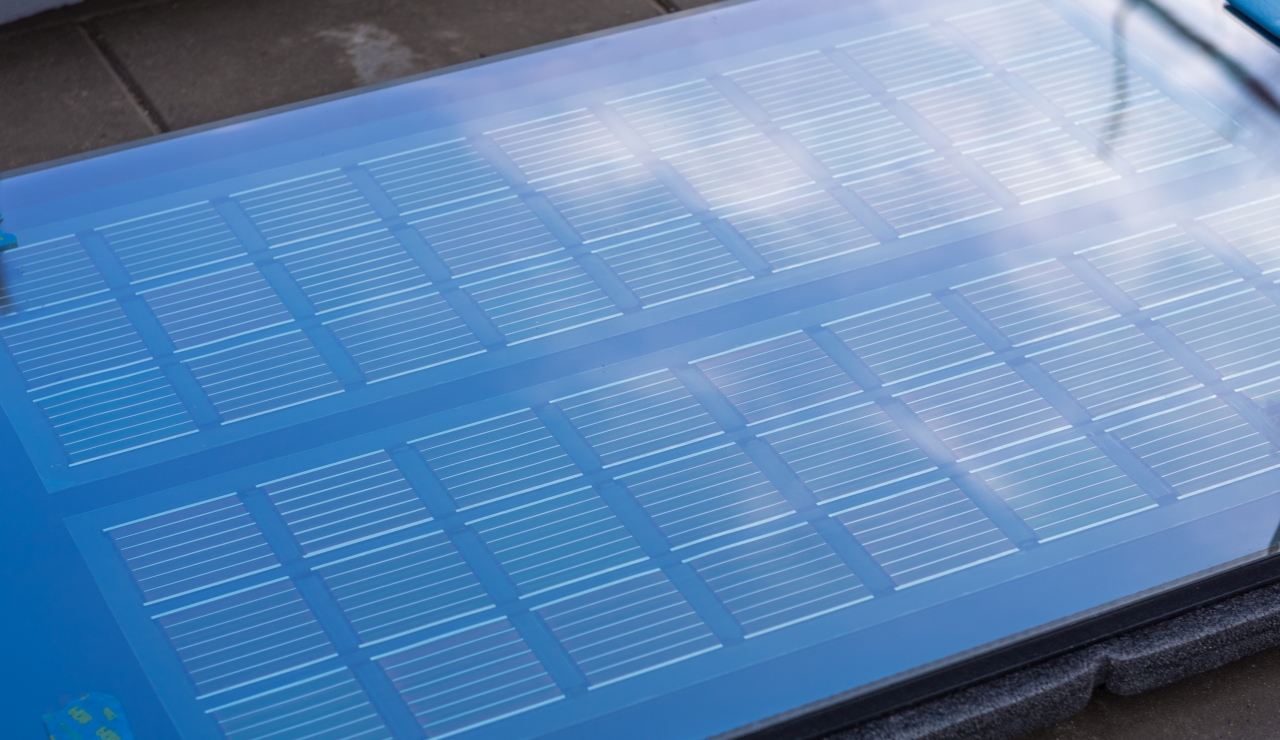News
Skanska Property Poland: and Saule Technologies commence revolutionary solar panels tests as UN COP24 conference is held in Poland
13-12-2018
- The second week of the 24th Conference of the Parties to the United Nations Framework Convention on Climate Change (COP24) is currently under way in Katowice, Poland.
- At the same time, in Warsaw, Skanska has just completed a pilot installation of Saule Technologies’ cutting-edge perovskite solar panel on the Spark office building’s façade.
- One of COP24’s main goals is to discuss guidelines for the implementation of the Paris 2015 Agreement, which aims to cut greenhouse gas emissions globally to limit the worst effects of climate change.
- Perovskite technology has huge potential to support the Paris Agreement's goals in replacing fossil-fuel energy production.
Skanska’s CEE office unit has just begun test-cell implementation in one of their Warsaw office projects. The usage of perovskite technology for zero-energy buildings is just the latest innovation in the developer's sustainable building strategy. Skanska is pioneering a method of covering office building exteriors with semi-transparent perovskite solar cells, provided by Saule Technologies, on a commercial scale. Perovskite technology has potential benefits for the developer, tenants and communities – favorable implementation costs, lower energy costs that lead to lower carbon footprints.
Perovskites are crystalline materials whose efficiency has already matched that of silicon cells, and is expected to improve even more in the following years. Perovskite solar cells are also flexible, ultra thin, lightweight and semitransparent. The stability and water resistance of the modules manufactured using Saule Technologies proprietary solutions means that they are ideal for the construction industry. The perovskites' generation of energy is effective even when the sun's rays are at less than an optimal angle. Furthermore, installation of Perovskites is not limited to the roof, as they can be located on or integrated with every flat surface, including windows, on a building.
Testing these cutting-edge cells on buildings
The size of the solar panel being tested is 1.3 x 0.9 sqm. It contains 52 photovoltaic modules. Ultimately, the final version of this particular panel ,when commercialized, will cover the demand for energy needed for lighting for one employee's workspace for eight hours . Alternatively, it is equivalent to the energy used by one computer that is on for an entire working day.
“It’s a fact: an operating office building consumes a great deal of energy. At Skanska we have been improving the energy efficiency of properties for many years. We’ve recently been recognized by Polish Ministry of Investment and Development and Global Compact Network Poland at COP24 for our efforts focused on sustainable development and the green solutions that we have applied in our projects. Currently, together with Saule Technologies, we are going a step further. In addition to reducing energy consumption, perovskites have a real opportunity of generating significant amounts of energy to meet the majority of a property’s demand. We’re well on the way to zero-energy buildings”, says Adam Targowski, Sustainable Development Manager at Skanska’s commercial development unit in CEE.
Perovskite solar cells go commercial
The pilot program aims to verify the ease that perovskite solar panels can be installed . Another reason for this trial is to ascertain the best solution for integrating a panel with a building’s façade, without interfering with the construction process or the design. The final product is expected to be ready in 2021.
“Perovskite PV modules are fabricated by using ink-jet printing technology. The product is then integrated into the double- glazed façade using a standard lamination process that is already utilized across the construction industry. Our next step is to scale up and automate the process. The first pilot production facility is scheduled to be launched at the end of 2019 ,which would allow for the fabrication of large perovskite PV modules on an industrial scale. At the same time, we will be working on process optimization in order to improve the operational parameters of the fabricated panels,” adds Konrad Wojciechowski, CSO and Project Manager at Saule Technologies.
Skanska has exclusive rights to use Saule Technologies’ solar cell solutions in construction and development projects, as stated in a license-based agreement signed between the two companies, in building façades and noise barriers across all Skanska markets worldwide (the Nordics, Europe and the USA).
Skanska Property Poland - more news and informations



 EUR 4.2586 zł
EUR 4.2586 zł USD 3.6353 zł
USD 3.6353 zł DKK 0.5707 zł
DKK 0.5707 zł SEK 0.382 zł
SEK 0.382 zł NOK 0.3567 zł
NOK 0.3567 zł